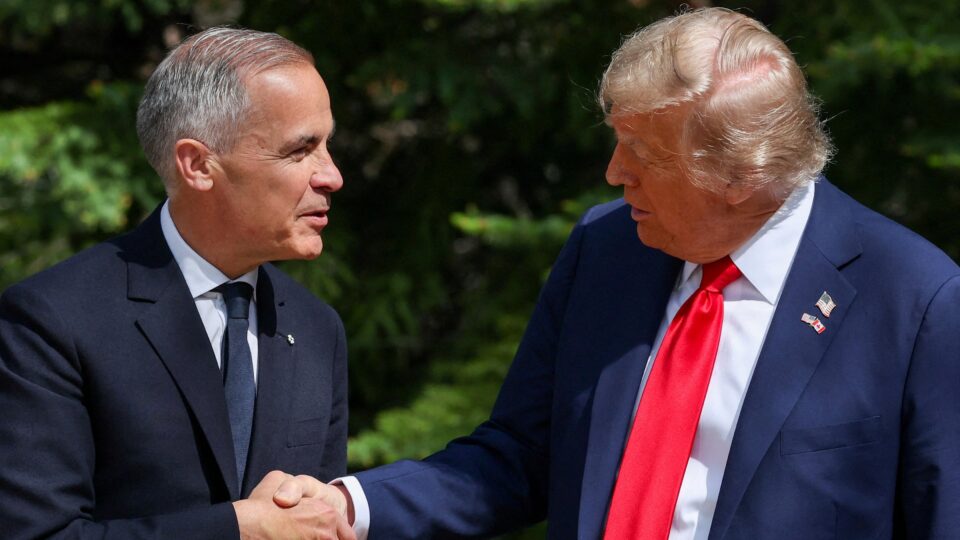President Donald Trump played tough with Canada and emerged victorious just 48-hours later.
Canada announced on Sunday night that it was scrapping its Digital Services Tax on American tech firms, which Trump had blasted as “a direct and blatant attack” on the U.S. when he walked away from the negotiating table just two days ago. The announcement from Canada came hours before it was due to come into effect.
“To support those negotiations,” the Canadian Department of Finance said in a statement, “Canada would rescind the Digital Services Tax in anticipation of a mutually beneficial comprehensive trade arrangement with the United States.”
Trump and Canadian Prime Minister Mark Carney have agreed to resume trade talks with a goal of inking a deal by July 21.
“Canada’s new government will always be guided by the overall contribution of any possible agreement to the best interests of Canadian workers and businesses,” Carney said.
The concession marks a big win for Trump, whose sprawling trade war has gained notoriety for its on-again, off-again rollout, earning him the nickname “TACO”—Trump Always Chickens Out—among Wall Street stockbrokers.
On Friday, Trump declared in a Truth Social post that he was canceling talks with Canada, describing it as “a very difficult Country to TRADE with” over the Digital Services Tax that was set to go into effect on Monday.
He continued his attacks earlier Sunday on Fox News. “People don’t realize Canada’s very nasty to deal with,” he told host Maria Bartiromo. “There’s been things going on that we don’t like and things going on where they took advantage.”
Large American corporations would have had to pay taxes on certain revenue earned from engaging with online users in Canada.
“They are obviously copying the European Union, which has done the same thing, and is currently under discussion with us, also,” Trump wrote. “Based on this egregious Tax, we are hereby terminating ALL discussions on Trade with Canada, effective immediately. We will let Canada know the Tariff that they will be paying to do business with the United States of America within the next seven-day period.”
The Computer and Communications Industry Association earlier estimated that U.S. firms would have to pay up to $3 billion in taxes, including retroactive charges dating back to 2022, if the tax were to take effect.
The group also warned that the Canadian tax could lead to annual losses of up to $2.3 billion for American companies, as well as cut 3,000 jobs.
“We appreciate the administration’s decisive response to Canada’s discriminatory tax on U.S. digital exports,” Matt Schruers, the association’s chief executive, said in a statement.

